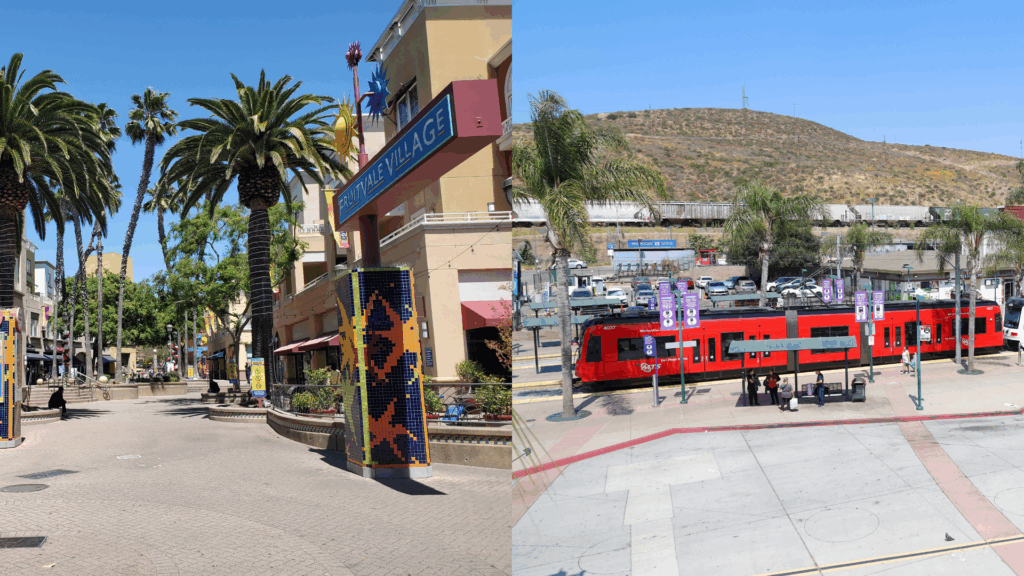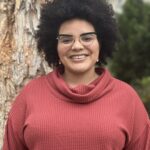FOR IMMEDIATE RELEASE
Contact: lppipress@luskin.ucla.edu
New UCLA LPPI Research Showcases Latino-Led Economic Resilience in San Ysidro and Fruitvale
LOS ANGELES (August 22, 2025) — The UCLA Latino Policy and Politics Institute (LPPI) has released a series of briefs documenting Latino-led Economic Development (LLED) efforts in historically underserved communities. These briefs highlight Latino communities’ resilience, innovation, and community-driven strategies in San Diego’s San Ysidro and Oakland’s Fruitvale neighborhoods during and beyond the COVID-19 pandemic.
The new LPPI analysis, authored by Cecilia Nuñez, Jennifer Uribe, Cristian Hernández, Chhandara Pech, Misael Galdámez, Paul Ong, and Silvia R. González, combines quantitative and spatial data, historical analysis, and practitioner insights. These reports offer a roadmap for policymakers, philanthropists, and community leaders to support community-rooted economic development that prioritizes equity and community self-determination.
San Ysidro, a majority-Latino neighborhood at San Diego’s southern edge and adjacent to the U.S.-Mexico border, exemplifies community strength amid crises. Key findings from the brief include:
- Severe COVID-19 health disparities: Case rates in San Ysidro were nearly double (56,493 per 100,000) and death rates over triple (517 per 100,000) the county averages, driven by environmental stressors and disinvestment.
- Limited Federal Relief: San Ysidro businesses received less than half the Paycheck Protection Program (PPP) funds per job than businesses countywide ($2,300 vs. $6,000).
- A Resilient Binational Economy: Anchored by cross-border retail (24% of businesses), San Ysidro’s local economy showed lower business turnover (49%) than the county (53%) from 2019 to 2023.
- Impactful Community-Rooted Leadership: Local leaders and organizations like Casa Familiar and MAAC stepped up with culturally tailored aid, driving vaccine outreach that secured the county’s top vaccination rate by 2023
Oakland’s Fruitvale, a culturally diverse neighborhood with a significant Latino and Indigenous Mam population, demonstrates the power of collective action in overcoming inequities. Key findings from the brief include:
- Disproportionate COVID-19 Impact: In September 2020, Fruitvale accounted for 19% of Alameda County cases despite being 10% of the population. Latino infection rates in Fruitvale reached 11.9%, while Indigenous Mam rates reached 26.8%.
- High Business Churn: From 2019 to 2023, Fruitvale local businesses experienced higher turnover than the county (79% turnover rate vs. 55% countywide). While Fruitvale businesses received more PPP funding than the county average ($9,800 per job vs. $5,900 countywide), many small businesses faced access barriers.
- Service-Based Economy: Healthcare and social assistance (42% of businesses) drives the local economy, amidst environmental challenges like double the county’s diesel particulate matter exposure.
- Community-Led Success: The Resilient Fruitvale Collaborative and Fruitvale Village, a mixed-use development, boosted homeownership and business activity while preserving cultural diversity, serving as a national model.
“These briefs reveal the extraordinary resilience of Latino communities in San Ysidro and Fruitvale, where local leaders have turned systemic challenges into opportunities for equitable, culturally-grounded development,” said González, director of research at LPPI. “By investing in community-based organizations as equal partners, policymakers and funders can amplify these models of inclusive growth that honor local voices and prevent displacement.”
Read the full case study on San Ysidro here and on Fruitvale here.
The series also includes parallel studies on South Phoenix and Tucson, Arizona, co-released with our partners at Arizona State University Center for Latina/os and American Politics Research (CLAPR). View press release here.
About UCLA Latino Policy and Politics Institute
The UCLA Latino Policy and Politics Institute is a non-partisan research institute that seeks to inform, engage, and empower Latinos through innovative research and policy analysis. LPPI aims to promote equitable and inclusive policies that address the needs of the Latino community and advance social justice. latino.ucla.edu.

















